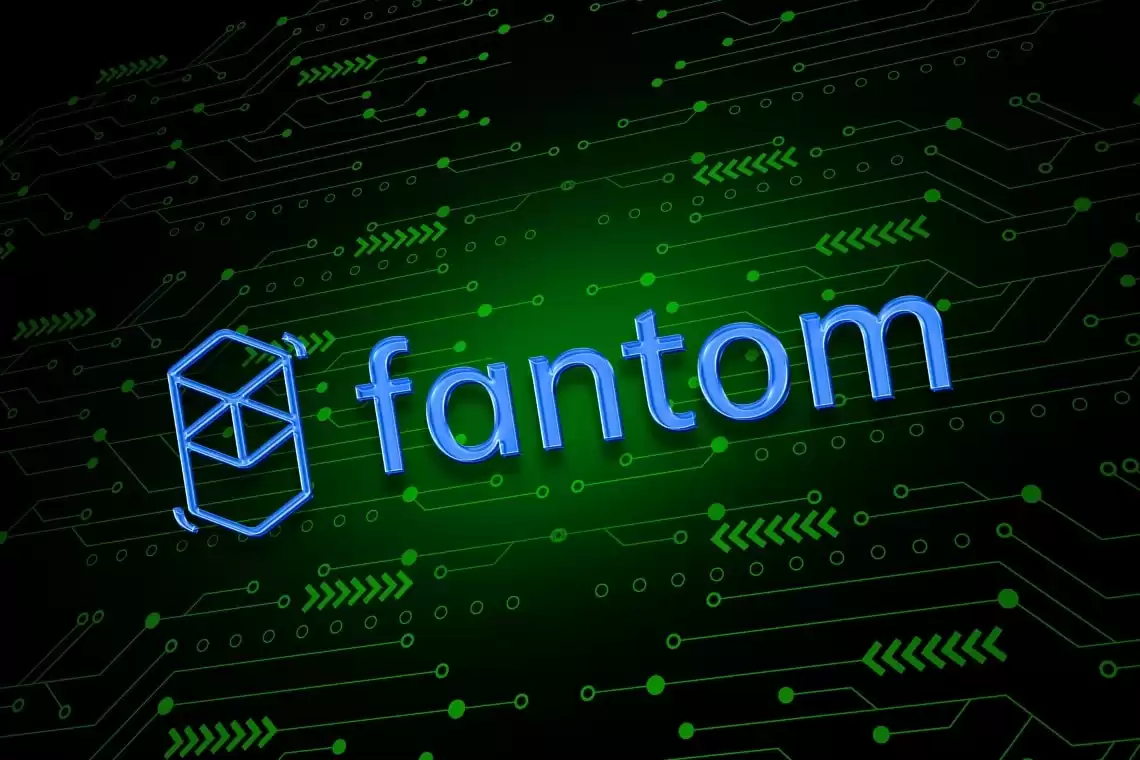-
 Bitcoin
Bitcoin $117600
0.25% -
 Ethereum
Ethereum $4424
0.10% -
 XRP
XRP $3.101
0.50% -
 Tether USDt
Tether USDt $1.001
-0.01% -
 BNB
BNB $836.2
1.26% -
 Solana
Solana $188.8
2.11% -
 USDC
USDC $1.000
0.01% -
 Dogecoin
Dogecoin $0.2301
0.57% -
 TRON
TRON $0.3485
-1.00% -
 Cardano
Cardano $0.9209
-1.34% -
 Hyperliquid
Hyperliquid $46.72
-1.19% -
 Chainlink
Chainlink $22.62
4.84% -
 Stellar
Stellar $0.4275
-0.38% -
 Sui
Sui $3.761
1.91% -
 Bitcoin Cash
Bitcoin Cash $586.7
-0.25% -
 Ethena USDe
Ethena USDe $1.001
0.01% -
 Hedera
Hedera $0.2510
2.06% -
 Avalanche
Avalanche $24.21
2.22% -
 Litecoin
Litecoin $119.7
1.07% -
 Toncoin
Toncoin $3.450
1.06% -
 UNUS SED LEO
UNUS SED LEO $9.411
-0.93% -
 Shiba Inu
Shiba Inu $0.00001298
1.20% -
 Uniswap
Uniswap $10.98
3.25% -
 Polkadot
Polkadot $3.961
2.16% -
 Dai
Dai $1.000
0.00% -
 Bitget Token
Bitget Token $4.642
0.95% -
 Cronos
Cronos $0.1514
0.57% -
 Ethena
Ethena $0.7290
3.78% -
 Monero
Monero $254.1
7.69% -
 Pepe
Pepe $0.00001102
2.47%
What is FTM coin? A comprehensive introduction to the FTM coin project in one article
Leveraging Fantom's scalable blockchain and low transaction fees, FTM coin facilitates fast and economical payments, DeFi applications, and network governance.
Oct 25, 2024 at 12:08 pm

FTM Coin: A Comprehensive Overview
1. What is FTM Coin?
FTM coin (Fantom) is the native cryptocurrency of the Fantom blockchain, a proof-of-stake network designed for high scalability and transaction speeds. Launched in 2018, Fantom aims to provide an alternative to Ethereum with lower fees and faster transactions.
2. Features of FTM Coin
- Speed: Transactions on Fantom are processed within seconds using a Directed Acyclic Graph (DAG) consensus mechanism called Lachesis.
- Scalability: Fantom claims to handle millions of transactions per second, making it suitable for high-volume applications.
- Low Fees: Transaction fees on Fantom are typically very low, making it cost-effective for users and developers.
- Composability: Fantom supports smart contracts and provides an ecosystem of decentralized applications (dApps).
3. Use Cases for FTM Coin
- Payment Platform: FTM can be used as a medium of exchange for goods and services within the Fantom ecosystem.
- Staking: FTM holders can stake their coins to earn rewards and help secure the network.
- Governance: FTM holders can participate in governance votes to determine the direction of the Fantom project.
- DeFi applications: FTM is used to access and interact with a range of DeFi applications built on the Fantom blockchain.
4. Fantom Blockchain Technology
- Lachesis Consensus: Fantom uses Lachesis, a DAG consensus mechanism that provides fast and secure transaction processing.
- Opera Chain: Fantom's core protocol, Opera Chain, is designed for speed and scalability.
- Virtual Machines: Fantom supports both Ethereum Virtual Machines (EVMs) and Fantom Virtual Machines (FVMs), allowing developers to deploy both Ethereum and native Fantom dApps.
5. FTM Coin Supply and Distribution
- Total Supply: Fantom has a limited total supply of 3.175 billion FTM.
- Initial Distribution: Approximately 40% of the FTM supply was initially distributed through a token sale in 2018.
- Remaining Supply: The remaining FTM supply is distributed through staking rewards, community initiatives, and other channels.
6. FTM Coin Price and Performance
FTM coin has experienced significant price fluctuations since its launch. The price reached an all-time high of $3.48 in October 2021. However, it has since corrected and as of June 2023, trades around $0.25.
7. Conclusion
FTM coin is the native cryptocurrency of the Fantom blockchain, a platform designed for high scalability and transaction speeds. With its competitive features and growing ecosystem, FTM has the potential to become a leading force in the blockchain industry.
Disclaimer:info@kdj.com
The information provided is not trading advice. kdj.com does not assume any responsibility for any investments made based on the information provided in this article. Cryptocurrencies are highly volatile and it is highly recommended that you invest with caution after thorough research!
If you believe that the content used on this website infringes your copyright, please contact us immediately (info@kdj.com) and we will delete it promptly.
- Kazakhstan's Crypto Leap: Bitcoin ETF and Central Asia's Digital Finance Future
- 2025-08-13 12:45:19
- BlockDAG Presale Blazes Past $371M: Fundraising Frenzy Fuels Crypto Sensation
- 2025-08-13 13:05:21
- Meme Coins: Chasing the 2025 Surge – Which Will Moonshot?
- 2025-08-13 10:25:23
- Bitcoin's Wild Ride: Rally, Pullback, and What's Next
- 2025-08-13 10:25:23
- Bitcoin, Bitmax, and Institutional Demand: A New Era of Crypto Investment
- 2025-08-13 10:45:12
- Solana, ROAM, and Airdrops: What's the Buzz in 2025?
- 2025-08-13 11:35:13
Related knowledge

What is Ethereum’s Slashing mechanism and how to punish malicious behavior?
Feb 20,2025 at 03:08am
Key PointsOverview of slashingDifferent types of slashing in EthereumIncentives and consequences of slashingIdentifying and reporting slashed validato...

What is the verifier node of Ethereum and how to become a verifier?
Feb 19,2025 at 06:00pm
The Verifier Node of Ethereum: A Comprehensive GuideKey Points:What is a Verifier Node?How to Become a Verifier NodeResponsibilities and Rewards of a ...

What is Ethereum’s staking, and how to participate and earn money?
Feb 19,2025 at 04:37pm
Key Points:Understanding Ethereum's Staking MechanismSteps to Participate in StakingBenefits and Rewards of StakingSecurity and Risk ConsiderationsTec...

What is Ethereum’s DAO (Decentralized Autonomous Organization) and how does it work?
Feb 20,2025 at 03:12am
Key PointsDefinition and Structure of a DAOGovernance and Decision-Making in DAOsBenefits and Use Cases of DAOsChallenges and Limitations of DAOsWhat ...

What is Ethereum's multi-signature wallet and how to improve security?
Feb 20,2025 at 02:18pm
Key Points:Understanding the Concept of a Multi-Signature WalletBenefits and Drawbacks of Multisig WalletsRequirements for Setting Up a Multisig Walle...

What is Ethereum's oracle and how to provide data for smart contracts?
Feb 21,2025 at 01:30am
Key Points:Understanding the concept of oracles in EthereumExploring different types of oraclesDetailed guide on how to provide data for smart contrac...

What is Ethereum’s Slashing mechanism and how to punish malicious behavior?
Feb 20,2025 at 03:08am
Key PointsOverview of slashingDifferent types of slashing in EthereumIncentives and consequences of slashingIdentifying and reporting slashed validato...

What is the verifier node of Ethereum and how to become a verifier?
Feb 19,2025 at 06:00pm
The Verifier Node of Ethereum: A Comprehensive GuideKey Points:What is a Verifier Node?How to Become a Verifier NodeResponsibilities and Rewards of a ...

What is Ethereum’s staking, and how to participate and earn money?
Feb 19,2025 at 04:37pm
Key Points:Understanding Ethereum's Staking MechanismSteps to Participate in StakingBenefits and Rewards of StakingSecurity and Risk ConsiderationsTec...

What is Ethereum’s DAO (Decentralized Autonomous Organization) and how does it work?
Feb 20,2025 at 03:12am
Key PointsDefinition and Structure of a DAOGovernance and Decision-Making in DAOsBenefits and Use Cases of DAOsChallenges and Limitations of DAOsWhat ...

What is Ethereum's multi-signature wallet and how to improve security?
Feb 20,2025 at 02:18pm
Key Points:Understanding the Concept of a Multi-Signature WalletBenefits and Drawbacks of Multisig WalletsRequirements for Setting Up a Multisig Walle...

What is Ethereum's oracle and how to provide data for smart contracts?
Feb 21,2025 at 01:30am
Key Points:Understanding the concept of oracles in EthereumExploring different types of oraclesDetailed guide on how to provide data for smart contrac...
See all articles

























































































